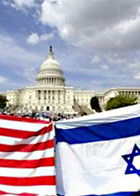The Organized Community

There are hundreds of Jewish organizations in the United States. Fifty-two national groups have qualified for membership in the Conference of Presidents of Major American Jewish Organizations. But only a handful, whether secular, religious, or "fraternal," can be said to wield extensive influence either inside the Jewish community or beyond it. One of these is the American Jewish Committee (AJC), a quintessential establishment agency whose annual meeting, held last week in Washington, drew notables from U.S. Secretary of State Hillary Clinton to Israel's Defense Minister Ehud Barak.
Founded in New York by affluent, acculturated "uptown" German Jews in 1906, the AJC sought initially to protect East European Jews suffering Tsarist-era oppression. Early leaders, including Jacob Schiff, Mayer Sulzberger, and Louis Marshall, shunned the limelight, discreetly advocating U.S. diplomatic intervention for their less well-off brethren. Theirs was a spirit of noblesse oblige.
When it came to Zionism, the AJC long wavered. It endorsed the Balfour Declaration in 1917, but in 1942 opposed the Biltmore Program, which set the establishment of a Jewish commonwealth in Palestine as an immediate goal. In the aftermath of the Holocaust, the AJC supported the Zionist enterprise while continuing to give priority to its major concerns at home: civil liberties, civil rights, and interfaith relations. Only after the 1967 Six-Day war, as pro-Israel positions came to define American Jewish life, did the AJC evolve into a leading moderate-liberal voice championing strong U.S.-Israel ties.
Although it is a membership organization that in principle seeks a broad base, the AJC remains fairly elitist, with policy set largely by its executive director David Harris and senior lay officers. Having apparently weathered the global financial crisis, the agency has adapted its fundraising strategy to focus on specific initiatives and programs, thereby allowing donors to gauge the impact of their support. It vigorously cultivates young leaders, offering them the kind of access to world figures that only an establishment organization can provide.
In the near term, the prognosis for this venerable group seems positive. But questions arise about the longer term. What does the future hold for the AJC, for AIPAC, for ADL, and for other large "defense" agencies when many of those most ardently committed to Jewish survival today are increasingly aligned with Orthodoxy and when the establishment's demographic base of political and religious liberals seems to be shrinking? Are not small, "boutique" agencies even better positioned than large ones to attract donors intent on targeting their philanthropy? As new media foster a welter of voices demanding a say in Jewish life, how will establishment agencies maintain their preeminence?
Perhaps most challenging of all, what will happen to the influence wielded by these organizations as the world order fractures and Washington's power is increasingly diminished?
Comments are closed for this article.




